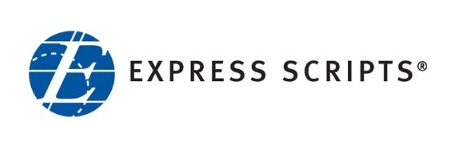Data released this week in the 2014 Express Scripts Drug Trend Report finds that high-priced new hepatitis C drugs and loopholes exploitation for compounded medications were the primary factors behind a 13.1 percent rise in expenditures on prescription drugs in 2014. That metric represents a rate of drug cost escalation higher than what has been experienced in more than a decade and is the largest annual increase since 2003.
More than half of the overall spending increase is attributable to the astronomical cost of Hepatitis C and compounded medications, and Express Scripts found that with those two therapy classes excluded, 2014 drug cost inflation (ie: the year-over-year uptick in per capita drug spending) was a still substantial but more modest 6.4 percent.
Express Scripts estimates that by 2016, spending on hepatitis C medications will exceed that of medications for much more common conditions, including high blood pressure and high cholesterol, with the explosive trend led by new therapies that cost as much as $1,000 a day, and sometimes more than $100,000 per patient. No therapy class has experienced such a high spending increase in the 21 years. Express Scripts has measured drug trend data and the inflation is adding a punishing premium over and above already inflated treatment costs. For employers and health plans, these costs are unprecedented and unsustainable.
Spending on specialty medications, biologic, and other high-cost therapies for complex diseases like multiple sclerosis and cancer accounted for more than 31 percent the 2014 cost spike, and as Express Scripts had forecast last year, the steepening trend in spending on specialty drugs more than doubled to 30.9 percent during 2014. However, the brutal cost of Hepatitis C medications was responsible for a whopping 45 percent of the total increase in specialty drug spending, notwithstanding it being the second lowest prescription volume category among the ten most prolific specialty conditions being medicated. Express Scripts notes that Medicare were particularly hard-hit 2014’s drug cost inflation since they’re obliged to adhere to Medicare Part D formulary guidelines, which increased their annual specialty drug spending by 45.9 percent.
 “For the past several years, annual drug spending increases have been below the annual rate of overall healthcare inflation in the U.S., but that paradigm is shifting dramatically as prices for medications increase at an unprecedented and unsustainable rate,” observes Express Scripts Senior Vice President for Clinical, Research and New Solutions Glen Stettin, M.D. “Now, more than ever, plans need to tightly manage the pharmacy benefit, implement smarter formularies, control compounded medication use and offer the right clinical support to ensure all patients are able to achieve the best possible health outcomes at a price our country can afford.”
“For the past several years, annual drug spending increases have been below the annual rate of overall healthcare inflation in the U.S., but that paradigm is shifting dramatically as prices for medications increase at an unprecedented and unsustainable rate,” observes Express Scripts Senior Vice President for Clinical, Research and New Solutions Glen Stettin, M.D. “Now, more than ever, plans need to tightly manage the pharmacy benefit, implement smarter formularies, control compounded medication use and offer the right clinical support to ensure all patients are able to achieve the best possible health outcomes at a price our country can afford.”
The report found that in 2014 Americans spent nearly 743 percent more on hepatitis C meds than in 2013, representing a 4 billion return on a promise kept. Express Scripts’ hepatitis C solution, which makes the drug cocktail called Viekira Pak (ombitasvir/paritaprevir/ritonavir packaged with dasabuvir) available to all hepatitis C patients and guarantees successful completion of therapy through Accredo, a specialty pharmaceutical and service provider for patients with complex and chronic health conditions, is projected to save the company’s clients $1 billion in 2015.
New Hepatitis C therapies are just one example of what Express Scripts calls “non-orphan drugs with orphan-drug price tags,” and they note that future pharmaceutical innovations, such as new cancer drugs and PCSK9 inhibitors for high blood cholesterol, will continue to challenge drug cost payers. PCSK9 inhibitors alone, which are projected to cost as much as $10,000 per patient annually, with a potential patient population of as many as 10 million Americans, could eventually cost the U.S. healthcare system an estimated $100 billion per year.
Close-Managed Plans Management Helps Mitigate Cost Increases
Express Scripts’ solutions, which include formulary and utilization management programs, combined with Express Scripts’ home delivery pharmacy, assist payers in providing improved patient care consistent with benefit affordability. The company says more than 15 percent of its clients spent less, per capita, on prescription drugs in 2014 than they had in 2013. Plans that paired home delivery with copay differentials, formulary management and step therapy saved up to an additional 12% to 19% on drug spending.
A Drug Trend Report sub-analysis found that, compared to payers with less-closely managed pharmacy plans, payers that had implemented four or more of Express Scripts’ cost-management programs, were successful in achieving nearly zero drug cost uptrend, and their spending on traditional (non-specialty) medications, such as drug therapies for common chronic conditions like diabetes was nearly 30 percent less per member.
Another sub-analysis reveals annual specialty spending increases were 32 percent lower for employers with tightly-managed specialty pharmacy benefit plans compared with employers with unmanaged benefits. The study, which analyzed spending by 851 clients, found that 20 percent of them employed no utilization management programs for specialty drug costs, also showed that tightly-managed programs resulted in higher average medication adherence rates for patients in top specialty therapy categories, such as multiple sclerosis and pulmonary conditions.
Formulary Design Enables Cost Savings Combined With Low Member Impact
Many plan sponsors opted to counter brand-drug price inflation by implementing the 2014 Express Scripts National Preferred Formulary, which excludes 48 products from coverage, and thus were able to achieve a 3.9 percent decrease in drug spending among affected therapy classes representing more than $750 million in savings. Excluded products represented only about one percent of all drug products on the market, and in all cases patients had safe and effective alternatives covered by their plan. Costs for plan sponsors that chose not to adopt the new formulary in those same therapy classes increased 7.2 percent, while plans that participated in the National Preferred Formulary in 2014, and continue to do so in 2015, have had significant decline in numbers of patients impacted by formulary exclusions while simultaneously realizing more than $2.2 billion in savings cumulatively.
Compounded Medications Driving More Traditional Medication Spending
The report notes that spending on traditional classes of medications has also continued to rise largely due to compounded drugs emerging for the first time in the top 10 traditional therapy classes, and accounting for 35 percent of spending increases despite having the fewest number of prescriptions.
Mobile Tool to Calculate Your Organization’s Future Hepatitis C Spending
The Express Scripts Lab and Accredo have launched an online calculator that enables health plan sponsors to explore the impact of rising hepatitis C medication costs and find opportunities to reduce costs. The tool is available at:
http://www.HCVCalculator.Express-Scripts.com
The calculator enables employers and health plans to calculate estimated plan costs for hepatitis C through 2016, after only inputing a few basic attributes, including:
• Number of members
• Percentage of members by plan type
• Per member per year (PMPY) costs for 2013
• Estimated percentage of members with hepatitis C that will be treated each year
• Therapy regimen mix (optional)
 For more information, visit: http://bit.ly/18jee7l
For more information, visit: http://bit.ly/18jee7l
More encouragingly, Express Scripts anticipates a sharp decline in spending on compounded medications in 2015 thanks to widespread adoption of their compound utilization management solution. This program, which was first implemented in mid-2014, is projected to save clients more than $1.9 billion in 2015 that would otherwise have been wasted on compounded medications that provide no proven clinical benefit.
“Express Scripts’ actions to close the compound loophole provided our clients with a swift and effective solution to this costly concern,” says Dr. Stettin. “There is no charge to clients for this new solution, only the benefit of a 95 percent reduction in waste associated with this category of medications. We ensure that patients who need compounds can access them; and where clinically appropriate, we ensure that patients who do not need these compounds can receive effective, more affordable alternatives.”
Additional Key Findings
The Express Scripts report also notes that other factors leading to increased drug costs in 2014 included drugmaker consolidation and drug shortages. Diabetes was the leading traditional therapy category based on total costs for a fourth consecutive year, and Express Scripts anticipates double-digit increases in spending on diabetes treatments over the next three years due to introduction of expensive new once-weekly oral and injectable drug therapies.
Pain medication costs increased 15.7 percent in 2014, due in part to the higher prices of new tamper-resistant for opiate formulations to combat abuse, while meds for inflammatory disorders, including rheumatoid arthritis and psoriasis, maintained their status as the costliest specialty drug class due to indications expansion and increased treatment prevalence.
For two decades, the Express Scripts Drug Trend Report has examined and analyzed annual trends in utilization, unit costs and overall prescription drug spending, based on the pharmacy claims data from Express Scripts, which is the nation’s largest pharmacy benefit manager. The full report is available online at:
http://Lab.Express-Scripts.com
St. Louis based Express Scripts is a provider of integrated pharmacy-benefit management services, including network-pharmacy claims processing, home delivery, specialty benefit management, benefit-design consultation, drug-utilization review, formulary management, and medical and drug data analysis services. The company also distributes a full range of biopharmaceutical products and provides extensive cost-management and patient-care services.
Source:
Express Scripts
Accredo
Image Credits
Express Scripts

